Oh! I had almost forgot about the tsunami evacuation fiasco. So, I was on my way to the road to catch the red-eye bus to Salelologa which goes by my village around 3am and I get a call, at 2:45am, from our fearless leader Dale Withington, the country director. He’s telling me that there has been an large earthquake in Chile and that the whole South Pacific could be expecting a tsunami. “Stop all travel, pack up your important belongings including water and food and your EAP (Emergency Action Plan) and seek higher ground immediately. The tsunami is expected to hit at 9am.”
So Talava, who was with me walking to the main road, and I turned back to the house and I told her what Dale had said. She turned on the radio when we got home and sure enough it was a continuous warning that tsunamis were expected in Samoa at 9am and to seek higher ground. She roused the children around 4am and started to pack things into large plastic bags.
I walked down to Tuaia’s (the school vice principal) and knocked on her door. One thing I’ve noticed about Samoans is that they never seem to sleep. If you even whisper someone’s name, they answer as if they were wide-awake all the time. It’s crazy. Right after I had explained the situation, her phone rang. It was her sister calling from another village, saying they were evacuating up the mountain. The radio was switched on and everyone started to rouse sleepily from under their mosquito nets. Large bushes of black hair were thrown hastily into buns and Tuaia’s husband lit up a cigarette.
“We must go to tell the faifeau and they must hit the bell” she said as we walked across the yard in the dark towards the Methodist pastors church. It must have been 4:30 but the house lights were on inside and Asi sat listening to the radio, scratching his white hair with a bored expression on the porch. He already had heard and he was waiting until 5am to ring the bell. Apparently, Digicel (One of Samoa's cell phone companies) had texted all the faifeaus about the tsunami. This was extremely interesting and I still haven’t quite figured it out. The natural disaster warning system is a mass text to the faifeaus of the village and the government does this through the cell phone company? Wow.
We hopped over to Tupolo, the EFKS pastors, across the street and found him and his wife also awake and listening to the news surrounded by snoring children. Tupolo glanced at his phone “Go out and ring the bell, Elisa. Three long, two short. Ua iloa? (Got it?)”. I went out to the bell in the yard, a long rusty pipe suspended on a fetter from a wooden frame, and struck it five times as instructed. Shortly after, Asi rung his bell. It created flame of Gondor chain effect and I could hear bells chiming in nearby villages as the tsunami warning sped across the island.
The rest of the early morning was spent tossing random things into a duffel to take with me up the mountain. I filled up all my water bottles, brought my packet of water sanitation tablets, all the first aid supplies, good shoes, warm clothes, ie lava lavas (wrap around fabric), my laptop, camera, and some family photos I had on my wall, tucked Lulu into a cardboard box with some food and met the rest of the family out on the lawn. The house had been secured, all the windows shut, the dvd player wrapped in plastic bags and put away in a drawer and all the food in the house had been taken with us. We lugged everything on our backs for a half an hour’s walk up a steep hill to the last fale in the village before the plantations. There were already four or five families there, spread out and talking softly. Our bags were stowed away in a room with piles of others and we were all given cups of hot cocoa to sip. Our numbers steadily grew and by the time the sun had risen, there were at least 15 families crowded into four fales, the children chasing each other outside.
10 o’clock came and there was still no tsunami and it looked like there would not be one at all. The tension quickly withdrew into relief, which then turned into irritation at all the worry for nothing. When the official “all clear” everyone trudged back down the hill to their houses and clean the mess they had made in their haste to evacuate.
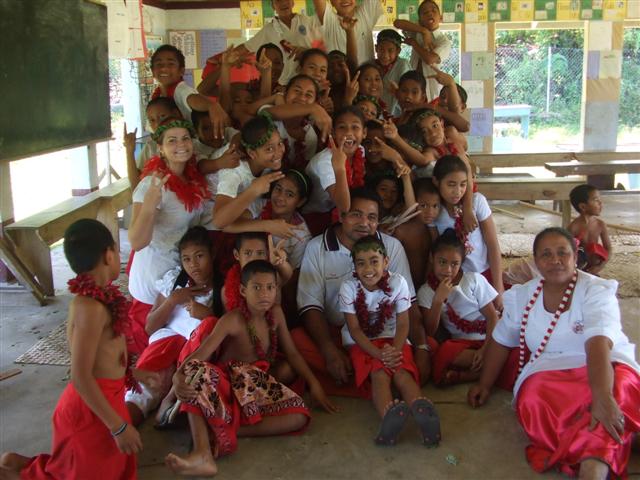.jpg)
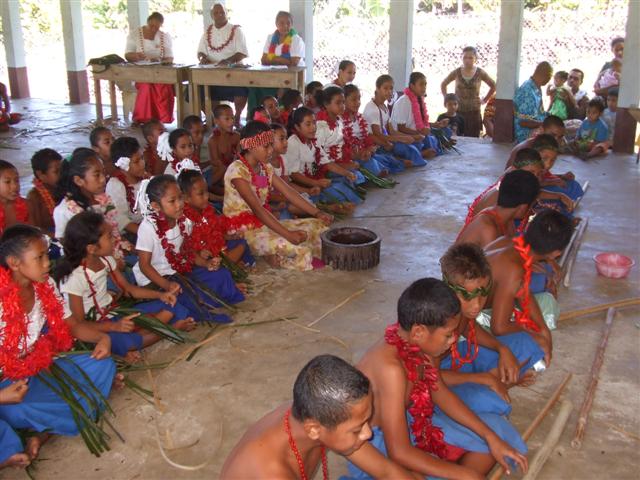.jpg)
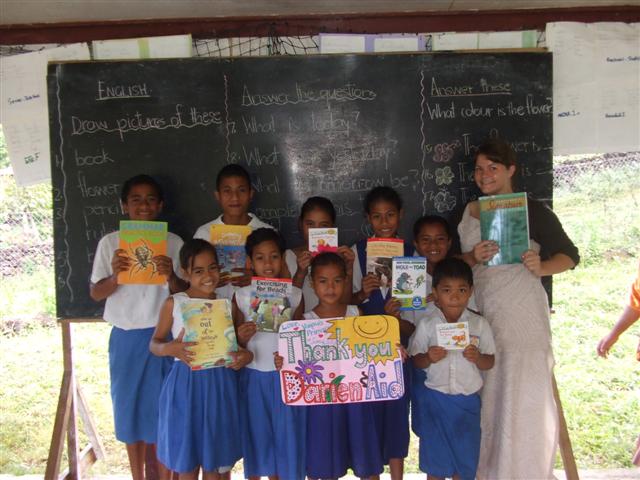.jpg)
.jpg)






.jpg)
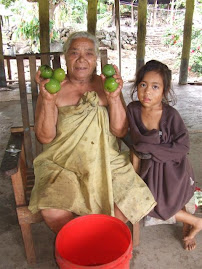.jpg)
.jpg)





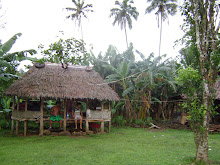






.jpg)

















